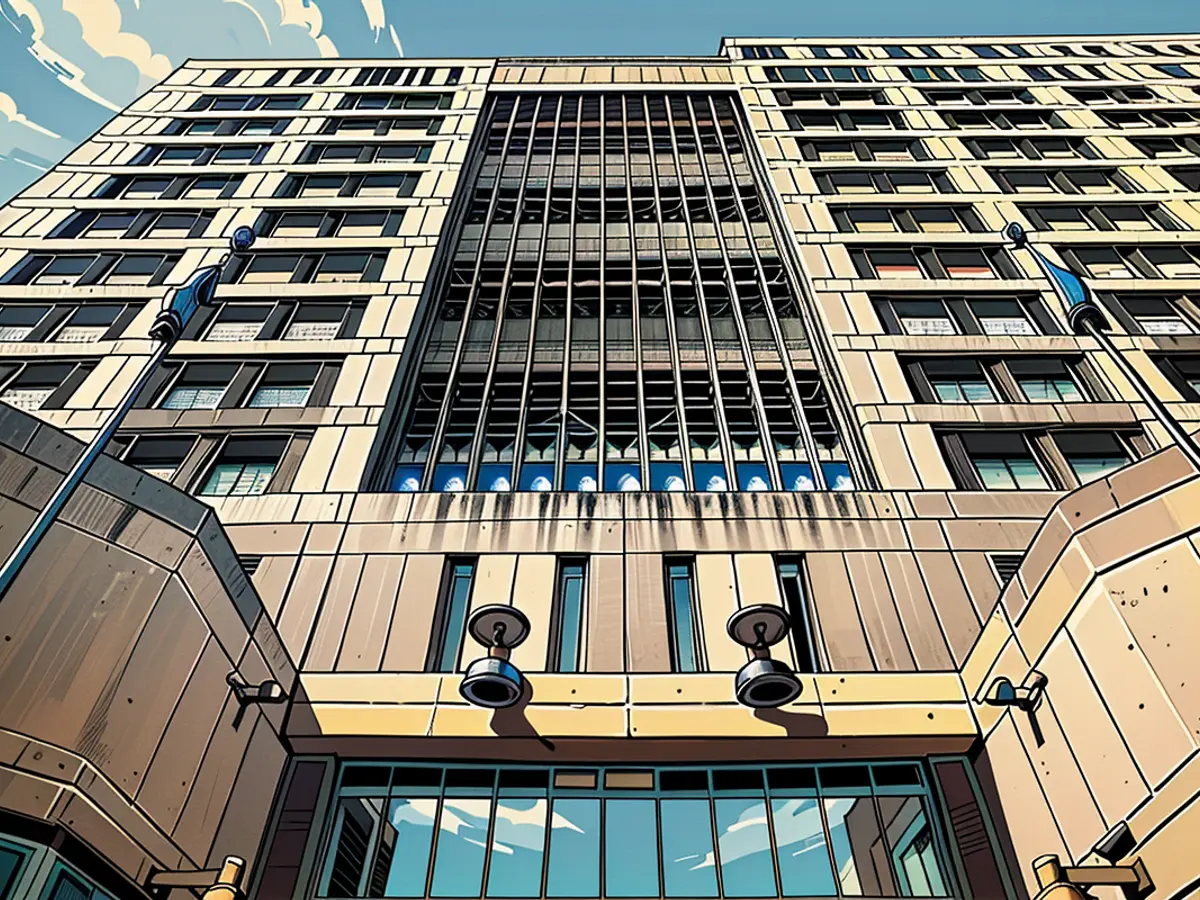From opulent abode to confined dwelling: A peek into the incarceration Sean 'Diddy' Combs currently experiences.
When he wakes up, he's facing off-white cinder block walls instead of the decor that adorned his lavish mansions, as Michael Cohen, previously a lawyer for President Donald Trump, shared with CNN on Wednesday.
Cohen is well-acquainted with the surroundings. He's one of several high-profile inmates who have served time in New York City's infamous Metropolitan Detention Center. This facility has also been a temporary home for singer R. Kelly, "Pharma Bro" Martin Shkreli, socialite Ghislaine Maxwell, former cryptocurrency entrepreneur Sam Bankman-Fried, and rapper Fetty Wap. At present, suspected cartel leader Ismael “El Mayo” Zambada Garcia is residing there, awaiting his trial on murder and drug trafficking charges.
A federal judge rejected Combs' bail request on Wednesday, stating that the proposal put forth by his legal team was inadequate in addressing the court's concerns regarding potential witness tampering or obstruction. Judge Andrew Carter expressed that no conditions could lessen the risk in Combs' case, thus he will remain in federal custody until his trial on racketeering conspiracy and sex trafficking charges.
Despite a trial date being unconfirmed, it's undetermined how long Combs will stay behind bars in the Brooklyn prison following Wednesday's bail denial.
No soft touches in incarceration
Notorious for dismal living conditions, staffing shortages, inmate assaults, and power outages, the Brooklyn prison is the sole federal correction center catering to New York City's vast population. After the Federal Bureau of Prisons shut down its Manhattan complex post-millionaire financier Jeffrey Epstein's 2019 suicide, this facility is currently the city's only option.
During Wednesday's court hearing, Combs' attorney Marc Agnifilo argued that the detention center's conditions would make it challenging for his client to prepare for trial.
Constructed in the 1990s to tackle overcrowding in New York City prisons, the Metropolitan Detention Center holds inmates awaiting trials in Brooklyn and Manhattan's federal court.
“He's currently sleeping on a steel bed with a 1.5-inch mattress, without a pillow, in an 8 x 10-foot cell that's far from pristine,” Cohen told CNN on Wednesday. Cohen, who was in the Special Housing Unit of the prison in 2020, explained that prisoners are given a measly 3 x 5-foot space to move around in their cells.
“For the time being, there aren't any books available, causing him to face a significant challenge,” Cohen described the early days for Combs at the facility.
Prison painted as ‘Inferno on Earth’
In June, one inmate awaiting trial on gun charges, Uriel Whyte, was stabbed to death by another inmate, according to a Bureau of Prisons press release. A month later, inmate Edwin Cordero was fatally injured in a fight within the prison, leaving his attorney to label the Metropolitan Detention Center as “an overcrowded, understaffed and neglected federal jail that is Inferno on Earth” in a report to The New York Times.
In January 2019, a power outage lasting a week left the correctional facility in a state of crisis, leaving inmates in near pitch-blackness and exposing them to freezing temperatures across the Northeast. The incident sparked a Justice Department investigation evaluating whether the Bureau of Prisons had adequate contingency plans to cope with inmate conditions. Consequently, a lawsuit filed in behalf of the prisoners alleged that inmates were forced to reside in their cells for extensive durations, endure malfunctioning toilets, and experience other unsanitary conditions.
The Bureau of Prisons resolved last summer's lawsuit by compensating 1,600 inmates a combined sum of approximately $10 million for the hardships faced due to the power outage.
Cohen shared with CNN that he's currently experiencing similar conditions as Combs, sleeping on a steel bed with a thin mattress in a small, not-so-pristine cell. The Metropolitan Detention Center, where they serve time, is often described as a challenging place for inmates, particularly those awaiting trial, due to factors like staffing shortages and harsh living conditions.








